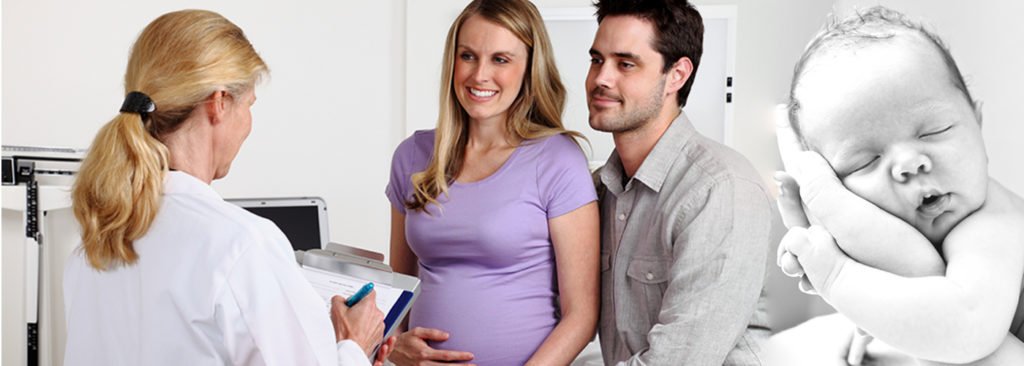Pregnancy involves prenatal/antenatal and postnatal care of the mother. It includes treatment and training for pre-pregnancy, pregnancy, delivery, and care of the mother and the baby.
Urvaraa IVF is a reputed and reliable platform for antenatal and postnatal care in Kolkata. We have modern and highly sophisticated machines and facilities to provide our dear clients with the pioneer antenatal care and postnatal care in Kolkata. We have attained much excellence and efficacy in this sphere for the best possible care of you and your babies. Urvaraa IVF has renowned physicians having vast proficiency in offering you world-class care and assistance. If you are in need of the best antenatal and postnatal care doctor in Kolkata, Urvaraa IVF can be your ultimate destination.

Antenatal care/ Prenatal care
Antenatal care is health care that women gets during pregnancy, before delivery. Taking prenatal care early and regularly can help you to improve the health of both the mother and the fetus. Regular care helps the doctor to understand the problems and risks of the pregnancy if any. Your doctor will send you to the practitioners who are experts in a high-risk pregnancy if there is a chance for you;
- To have chronic medical conditions like diabetes mellitus or heart problems.
- To have increased risk of preterm labor
- If you are older than 35
- Have multiple pregnancies
- Have another complication factor which may cause a high-risk pregnancy.
If you are healthy and there is no complication, then you have to visit your doctor in;
-every 4 weeks until the 28th week of pregnancy
-then, every 2 weeks until 36 weeks
-then, once a week until delivery
Antenatal tests:
Antenatal tests can help the doctors to check whether there is any birth defects or chromosomal problems in the fetus. These tests are done in 1st, 2nd and 3rd trimester. It includes,
- Blood test
- Amniocentesis
- CVS
- Ultrasound
Common pregnancy concerns:
- Gestational diabetes
- Preeclampsia
- Rh- incompatibility
These conditions are serious but manageable if you take early care.
Other measures to take during antenatal care:
- Do not smoke, drink alcohol and take drugs
- Get enough rest
- Eat a healthy diet
- When you are pregnant it is important to avoid foodborne diseases such as listeriosis, toxoplasmosis, etc. which can be life-threatening for the fetus and may cause abortion or birth defects.
- Your doctor may suggest for a couple of vaccines
- Call your doctor immediately if you have,
-Heavy bleeding
-Sudden loss of fluid
-A noticeable absence of movement of the baby
-More than 3 contractions in an hour
Post-natal care
Postnatal care is the health care given to the mother and the newborn baby, immediately after birth and for the first 6 weeks. Care of the mother and newborn after birth:
It is recommended that the woman should not be discharged from the hospital 24 hours after birth. Someone should accompany the mother and the baby to respond to any changes seen in the condition of the mother and the baby. Many complications can occur in the first 24 hours.
- Following birth, the mother and the baby should be checked within 24 hours.
- The doctor has to discuss with the mother about the time of visits, immunization schedule, the importance of breastfeeding and its positions.
- The timing of resume sexual relation after childbirth should be guided by the doctor.
- Woman in the postnatal period also maintain a balanced diet, and she should continue iron and folic acid supplementation for 3 months.
Care of the newborn after birth:
The doctor will give guidance for breastfeeding as well as information about the cord care, and other care for the baby at home.
- Keep the baby warm: Baby should wear 1-2 layers of cloths.
- Care for the umbilical cord. Do not put anything on the stump.
- Keep the baby cleanord. Do not put anything on the stump.
- Provide nothing but breast milk day and night
- Should follow the postnatal visits and immunization schedule
- Keep the baby away from the smoke
- Do not expose the baby to direct sunlight
- The baby who had breathing difficulties during birth and needed resuscitation should be carefully monitored over the next 24 hours. Give attention for any danger signs in the newborn.
FAQs or frequently asked questions on Antenatal and Postnatal Care
It should start between 8-12 weeks of pregnancy. The earlier you start antenatal checkup is better.
Folic acid can reduce the risk of having a baby with neural tube defect such as spina bifida.
First 6 weeks after birth is critical to the health and survival of the mother and the baby.
The postpartum woman should have an assessment of vaginal bleeding, uterine contractions, fundal height, temperature and heart rate during the first 24 hours.
Lochia is the heavy flow of blood and mucus, starts after delivery and last for about 10 days. Spotting can continue up to 6 weeks after delivery.


